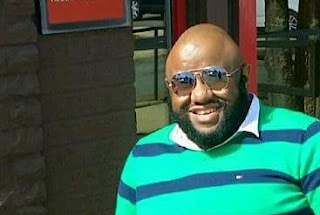People with disabilities need to know the signs of abuse
By Timothy Redd
Today I listened the Senior Zone podcast and learned quite a about elder abuse and justice. The guest on the show was Edwin Walker. As the Deputy Assistant Secretary for Aging of the Administration on Aging (AoA) within the Administration for Community Living, Edwin L. Walker serves as the chief career official for the federal agency responsible for advocating on behalf of older Americans.
In this capacity, he guides and promotes the development of home and community-based long-term care programs, policies, and services designed to afford older people and their caregivers the ability to age with dignity and independence and to have a broad array of options available for an enhanced quality of life.
Elder abuse is occurs more frequently than you may think and many think it’s a personal problem and don’t want to give involved. This is a humanity issue and one the best thing you do is say something if you see something. Elder abuse is any form of mistreatment that results in harm or loss to an older person. It is generally divided into the following categories:
- Physical abuse is physical force that results in bodily injury, pain, or impairment. It includes assault, battery, and inappropriate restraint.
- Sexual abuse is non-consensual sexual contact of any kind with an older person.
- Domestic violence is an escalating pattern of violence by an intimate partner where the violence is used to exercise power and control.
- Psychological abuse is the willful infliction of mental or emotional anguish by threat, humiliation, or other verbal or nonverbal conduct.
- Financial abuse is the illegal or improper use of an older person's funds, property, or resources.
- Neglect is the failure of a caregiver to fulfill his or her care giving responsibilities. Self-neglect is failure to provide for one's own essential needs.
Did you know that Approximately 1 in 10 Americans aged 60 and over have experienced some form of elder abuse? Some estimates range as high as 5 million elders who are abused each year. One study estimated that only 1 in 14 cases of abuse are reported to authorities Recent studies show that almost half of those with dementia experienced abuse or neglect. Interpersonal violence additionally occurs at disproportionately higher rates among adults with disabilities.
When it comes victims of elderly abuse, their attacker is typically someone who has established a trust relationship with. It is common to find that abused elder feel shamed or may make excuses for their abusers. Here are a few key indicators of abuse and some common forms of abuse:
- Physical: bruises, broken bones, abrasion, and burns
- Emotional: Change in alertness, loss of interest in thing once enjoyed, and depression
- Exploitation: Change in financial abuse
- Sexual: bruises in genital region
- Neglect: Poor hygiene, bedsore, unusual weight loss, unattended medical needs
If you are elderly make sure you have a plan or develop a plan so that your support system will know how you wish to live so that they will recognize if anything is out of the ordinary.
If you observe or suspect elderly abuse call Adult Protective Services. TN Adult Protective service number is 1-888-APS-TENN (1-888-277-8366). If you suspect immediate danger call 911. To find resources and to learn more you may access www.eldercare.gov.



No comments:
Post a Comment